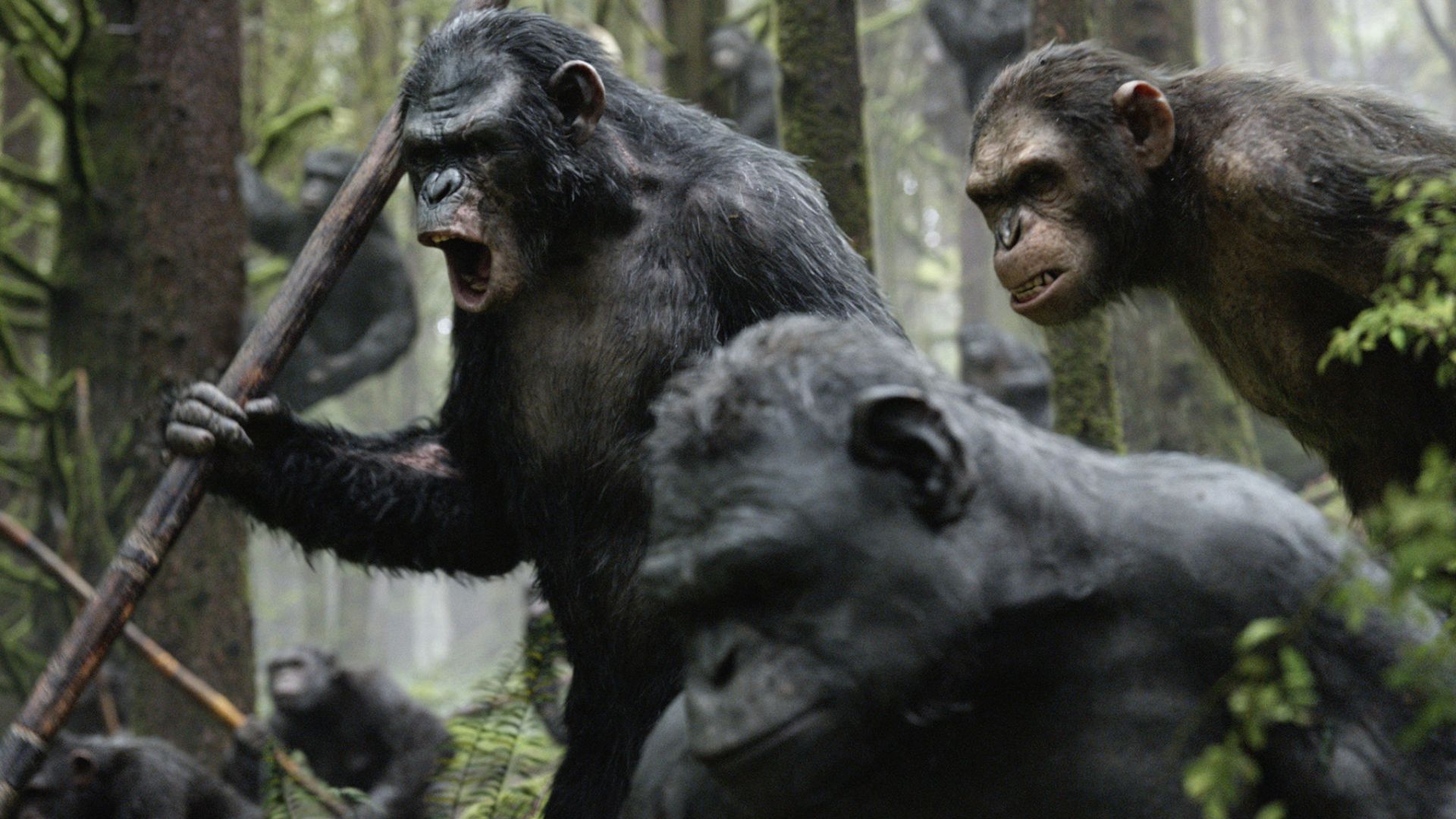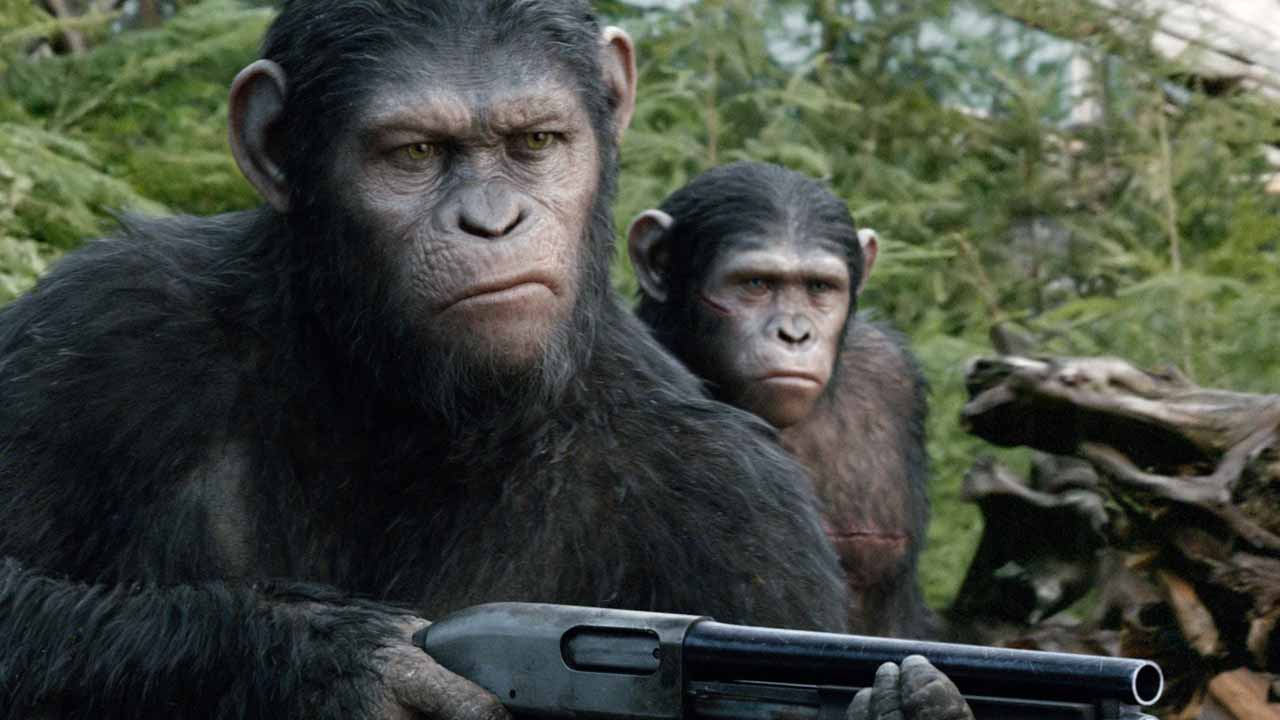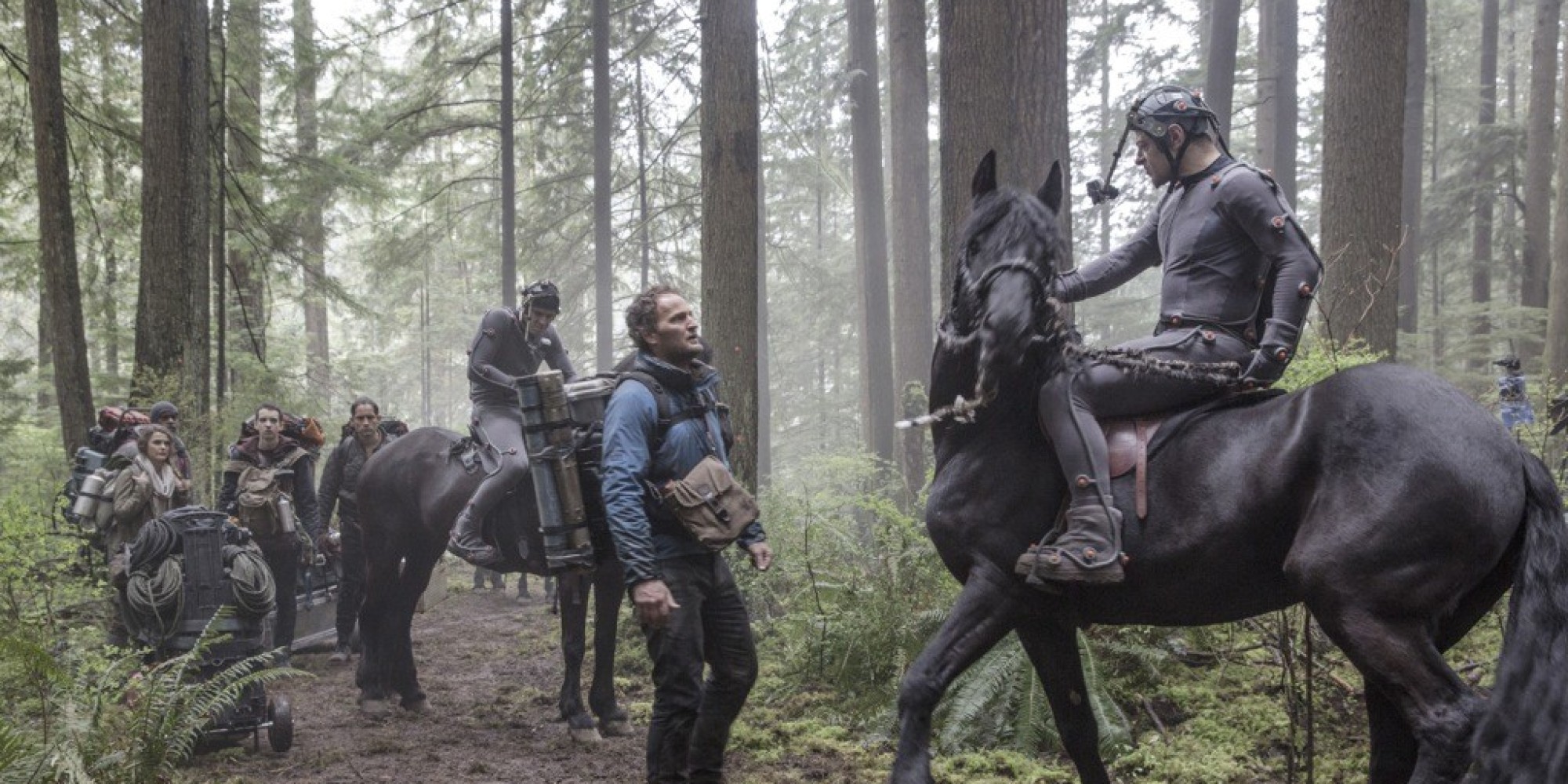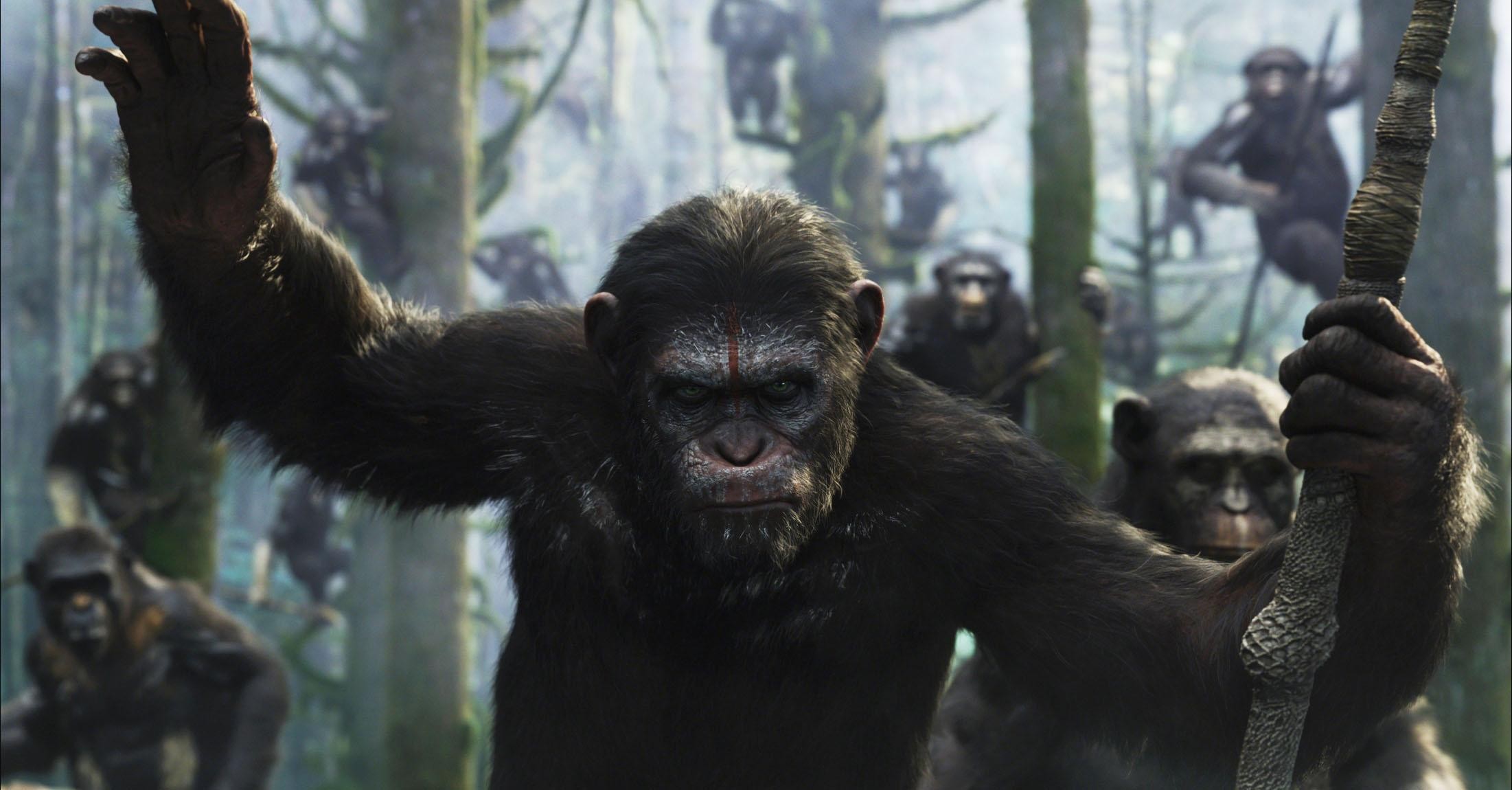Rise of the Planet of the Apes (2011) had better special effects than either the original franchise or the Tim Burton remake—but it had two big problems. First, since it was an origin story, we always knew what the the outcome would be. The movie had 90 minutes of foreshadowing, followed by 15 (stellar) minutes of action mayhem. Second, since nearly every human that wasn't Rodman or his love interest was an unrepentant jerk, it was hard not to find ourselves rooting for the apes—or at least wondering if we were supposed to.
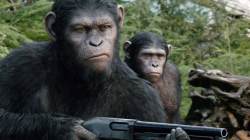 Twentieth Century Fox Film Corporation
Twentieth Century Fox Film CorporationBut what Rise did well, it did exceptionally well. Dawn of the Planet of the Apes has a new director—and, perhaps more importantly, it doesn't have to be an origin story. So there was no reason to think that this newest film couldn't be one of those serial installments (like The Empire Strikes Back, Harry Potter and the Prisoner of Azkaban, or Toy Story 2) that was better than its original tentpole.
It is better. Not by much, though, and not where it counts the most. It's better on the level of spectacle, but the storytelling remains shaky at best.
Its implications about us also remain troubling—and not in a good way.
Dawn begins several years after the "Simian Fever" has decimated the human population, causing the collapse of governments and crippling the technological infrastructure on which civilization apparently rests. After a montage during the credits summarizes the back story, the film's first 15 minutes or so focuses on the burgeoning and somewhat Edenic ape civilization in the forests outside San Francisco.
The highly evolved ape Caesar has passed on sign language (and a smattering of voiced words) to his companions, along with healthy doses of common sense ("think before you act, son," an older ape tells his offspring on a hunt) and a rudimentary moral code ("apes do not kill apes"). Eventually a small band of humans, in trying to reach a dam to restore hydroelectric power to the city, stumble across the apes' community. Despite some early missteps, the good ape and the good human (Jason Clarke as Malcolm) tentatively work out an understanding while those surrounding them give vent to their fears and mistrust, pushing the two groups towards war.
At this point, Dawn runs into the same problems that bogged down Rise. The rebooted franchise may not be following the exact mythology of the original Planet of the Apes series, but does anyone think there is not going to be a war? The filmmakers are more interested in plot (how will the sequence of events unfold to lead to the inevitable?) than in suspense or conflict. So the second act drags on way too long; it's like watching the middle innings of a baseball game on tape delay after you've already been told the final score.
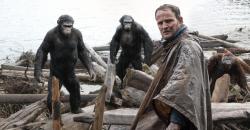 Twentieth Century Fox Film Corporation
Twentieth Century Fox Film CorporationAnd as with its predecessor, Dawn doesn't give its human community even a modicum of pragmatism, outside of the sympathetic protagonist (or his family nucleus). So we have nobody to root for once the war starts. If Malcom isn't back in three days, the humans are going into the forest to kill all the apes, Dreyfus (Gary Oldman) vows. The humans tortured him when he was a captive lab animal, Koba complains.
The film doesn't even adopt a perspective visually: when Malcom is surrounded by the apes and first taken before Caesar, the camera puts the viewer in the human's shoes. But when ape scouts climb over the Golden Gate Bridge or during an early hunt, we get point-of-view shots that let us swing with the apes.
The franchise's unwillingness to take sides, its insistence on what Charles Krauthammer once dubbed "moral equivalence," is its most puzzling and dissatisfying feature. For most of the film the scales are tipped in the apes' favor: humans kill each other while apes live in peace. But by the end even Caesar is admitting that "I always thought ape better than human. . . . I see now how much like them we are."
So that's it? In the collective (nations, species) we're all equally flawed, and we're cursed to fight endlessly, since the most impressionable of us will always be swayed in their fear and hate by those who would appeal to their most bestial instincts? Can we never be inspired to live in conformity to higher ideals (whether religious or political)?
The film's answer appears to be a resounding "no." A few special individuals may have heightened moral sensibilities. But these are impotent when it comes to swaying hearts and minds faced with real-world conflicts.
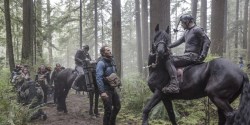 Twentieth Century Fox Film Corporation
Twentieth Century Fox Film CorporationA few weeks ago, my colleague Jeremy Purves brilliantly analyzed another military epic, pointing out just how much pathos was infused into the fight between Achilles and Hector in Wolfgang Petersen's adaptation of the Iliad. The combat scenes in Dawn of the Planet of the Apes are admittedly stunning, some of the best combinations of frenzied activity and visual legibility since Aliens.
But when you're in a theater and you find yourself wistfully longing after the moral complexity of Troy—well, that says something about just how far down the path we've gone of preferring pure spectacle over meaningful action embedded in a thoughtful narrative.
Caveat Spectator
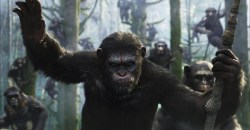 Twentieth Century Fox Film Corporation
Twentieth Century Fox Film CorporationGiven its status as a war movie, Dawn of the Planet of the Apes earns a relatively tame PG-13 rating. That means there are explosions aplenty but fewer close-ups of the effects of violence. We see people (and apes) shoot guns, but we don't see the bodies torn asunder by bullets. In two separate sequences we see apes fall (or thrown) from high spaces but are spared the sight of the moment of impact. The apes engage in unarmed fighting, which involves a lot of hitting and throwing, and at a few points we see apes attacking humans in a similar manner. An early scene in which a pair of apes fight a bear is intense and may be scary for younger viewers. PG-13 films are judicious in their use of profane or obscene language. These days, watching one usually entails a Bingo-like challenge to catch the one allotted use of the f-word—I actually missed it this time. With no (human) nudity or sexual content to speak of, the film may be one of those summer action flicks that gets its share of "least objectionable" ticket purchases. That said, it is loud and long, and just because the apes don't use God's name in vain when they shoot people doesn't mean there isn't sufficient carnage to give sensitive adolescents sensory overload.
Kenneth R. Morefield is an associate professor of English at Campbell University. He is the editor of Faith and Spirituality in Masters of World Cinema, Volumes I & II, and the founder of 1More Film Blog.

